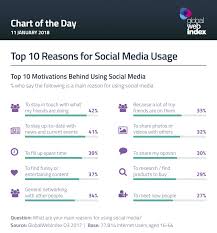
When Debt Becomes More Than Just Numbers Debt doesn’t just sit quietly on a balance sheet. It carries emotional weight, often heavier than the numbers themselves. People in long-term debt may find that the stress, guilt, and constant worry affect their daily lives just as much as the financial strain. Even when someone considers options like debt settlement to manage what they owe, the emotional side of debt lingers. Staying in debt is not only about money—it is about how it shapes confidence, relationships, and overall well-being.
The Constant Pressure of Stress One of the most common effects of staying in debt is ongoing stress. Bills pile up, interest grows, and even routine expenses can feel overwhelming. This pressure is like a constant background noise, distracting people from work, hobbies, and even family life. Stress of this kind can also have physical effects, contributing to headaches, trouble sleeping, or even long-term health problems. When debt becomes a daily concern, peace of mind feels out of reach.
The Weight of Guilt and Shame Many people in debt carry guilt, feeling like they made poor decisions or let themselves and their families down. This guilt can quickly turn into shame, making it harder to ask for help or talk openly about money struggles. Instead of seeing debt as a common challenge—something millions of people face—individuals may internalize it as a personal failure. That mindset only deepens the emotional toll, making progress harder.
Relationships Under Strain Debt can put strain on even the strongest relationships. Couples may argue about spending or saving, friends may avoid outings they can’t afford, and family members may disagree about financial priorities. These tensions can create distance, resentment, and miscommunication. Over time, the stress from debt doesn’t just affect the person carrying it—it ripples through households and social circles, sometimes leaving lasting marks on trust and closeness.
Debt and Mental Health There is a strong connection between debt and mental health challenges. Feelings of hopelessness, anxiety, or depression often increase when someone feels stuck financially. The cycle can become self-reinforcing: worry about debt leads to mental health struggles, which in turn make it harder to take positive financial steps. Some individuals may even avoid opening bills or checking account balances because the anxiety feels too overwhelming. This avoidance keeps the cycle alive, leaving people feeling powerless.
The Hidden Costs of Avoidance Staying in debt often involves a pattern of avoidance. Ignoring calls from creditors, skipping payment reminders, or putting off conversations about money may bring temporary relief, but it increases long-term stress. Avoidance can also mean missed opportunities to take action, such as negotiating with lenders or creating a repayment plan. The emotional toll grows heavier with every delayed decision, as the weight of “what if” piles on top of existing financial strain.
Finding Relief Through Action The emotional burden of debt often begins to lift when people take even small steps toward solutions. Whether that means creating a simple budget, reaching out to a financial counselor, or exploring structured options like Debt Settlement, action provides a sense of control. Each step forward shows that debt doesn’t define a person’s worth or future. Taking action may not erase the debt immediately, but it can begin to ease the emotional toll by replacing fear with direction.
Rebuilding Confidence and Balance Moving forward from the emotional toll of debt requires more than just paying it down—it requires rebuilding self-confidence. Learning to view money as a tool rather than a source of shame is part of the process. Celebrating small wins, like paying off one account or saving a small emergency fund, helps create momentum. Balance means not only addressing debt but also allowing room for joy, relationships, and growth along the way.
Final Thoughts Staying in debt affects far more than finances. The stress, guilt, relationship strain, and mental health challenges can weigh heavily on anyone caught in its grip. But the emotional toll doesn’t have to last forever. By recognizing the feelings debt creates and taking intentional steps toward solutions, individuals can break free from the cycle. Options like Debt Settlement can help with the numbers, but addressing the emotional side is just as important. In the end, financial recovery is as much about peace of mind as it is about balancing the books.
The post The Emotional Toll of Staying in Debt appeared first on Social Media Explorer.
Did you miss our previous article...
https://socialmediaamplification.com/social-media-analysis/david-t-scotts-big-bet-making-tabletop-games-the-next-pop-culture-wave






